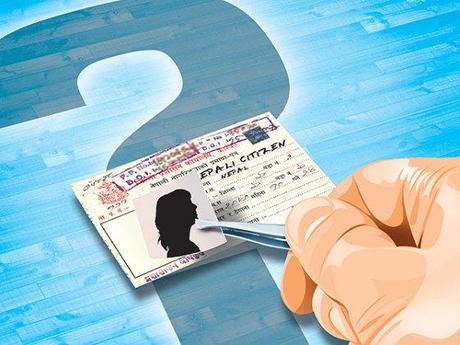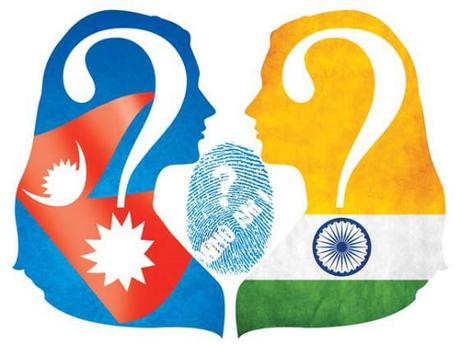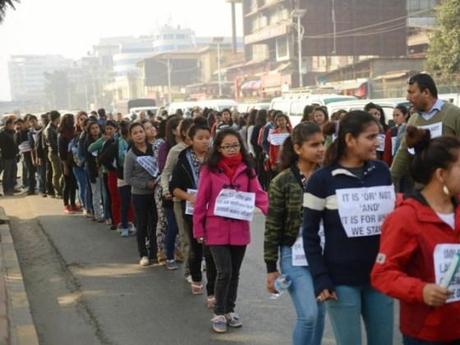Citizenship has been something long debated in Nepal. It has always been difficult for all Nepalis to truly claim their citizenship rights. Not surprisingly, this has affected the most vulnerable of groups; woman, low castes and the poor.
Nepal is a country where you cannot claim citizenship through being born in Nepal so most claim through heritage – but this has only been promoted if through the father. If you have a non-Nepali father or are without a father then you are also sans citizenship or your life will be a battle trying to claim what is rightfully yours!
But instead of Nepal trying to fix this delicate issue, their new 2010 addition to citizenship matters is the most recent interim constitution which has only infuriated many and shocked others. By proposing the change from citizenship through ‘mother or father’ to ‘mother and father’, Nepal is making it even more difficult for single mothers’ children to be granted citizenship. By doing so, that also affects Nepali children who have one parent who is not a Nepali.
What is incredibly worrying is that this new amendment has been put forward for the rewriting of the constitution and may be finalized in legislation until it is rewritten again. The last constitution was written in the early 1990s but after a revolution, Nepal called for a rewriting which has been going underway since around 2007.

Source: Google Images
Those with power in Nepal are arguing that this new proposition will help Nepal to remain in the possession of Nepalis. The general idea is to keep other countries’ citizens from being able to claim citizenship. Some examples of this are that prices of houses and land will be kept down and careers can be preserved for Nepalis (just to name a few).
However, their biggest ‘for’ argument is based on a worry about Indian’s coming into the Nepal. After the Madheshis (people from the Tarai region) lost power in the second constituent assembly, the traditional parties took over. Now, a general fear of an Indian invasion or Tarai dissolution has crept over Nepal and is now lingering in the rewriting of the constitution.
I am left dumbfounded by Nepal’s regressive attitude which has been solely based on the unfounded notion of an Indian invasion. It seems, to adhere to the interests of the state; it is only natural for everyone else to receive the burden! If this ‘mother and father’ clause continues on to the finalization then Nepal’s women will be even more discriminated against. Not to mention the thousands of children of Nepal who will not receive citizenship and will remain stateless. There is no evidence for an Indian invasion and for the Nepalis to have to take sacrifices based on this notion is absurd. Not to mention that there is a general disregard for the sheer amount of people who will not ‘belong’, shouldn’t this drastic backlash have stopped Nepal from producing the ‘and’ clause? You’d have hoped so…
Besides, there are many people who deem themselves as Nepalis, have been brought up in Nepal, can speak Nepali, and believe in the unity and beliefs of the country. But they are made to feel as if they have a bad blood inside them. What is the cause of that? Because they are half Indian. The citizenship notion is detrimental, even to people who may already have Nepali citizenship but are made to feel unwelcome or like they are not a true Nepali.

Source: Google Images
As the deadline draws nearer, petitions and rallies are being established. Women are coming together and taking a stand for their rights. The fantastic Citizenship Through Mothers Campaigners have set up a petition at Change.org which I urge you all to read and sign, you can find it here.
But only time will tell as to whether these efforts have been in vain. Will Nepal revert back to the ‘mother or father’ clause? If they do, will they work on improving citizenship rights for women? Or will they stay with the ‘mother and father’ clause? Or indeed will the assembly meet the deadline at all?
Many questions are surrounding the citizenship debate. I have only been able to find out very little on the matter due to my poor Nepali and inability to read script (and I do not consider myself an expert on the matter). However, if you can read Nepali then please read the publications and articles. It is important that everyone is aware of the matter, both men and women, as in the end it will affect us all.
Readers – Has this affected you or your families in anyway? Do you have any opinions, comments or suggestions? Please leave a comment below!

A march in November.
Source: Google Images.

